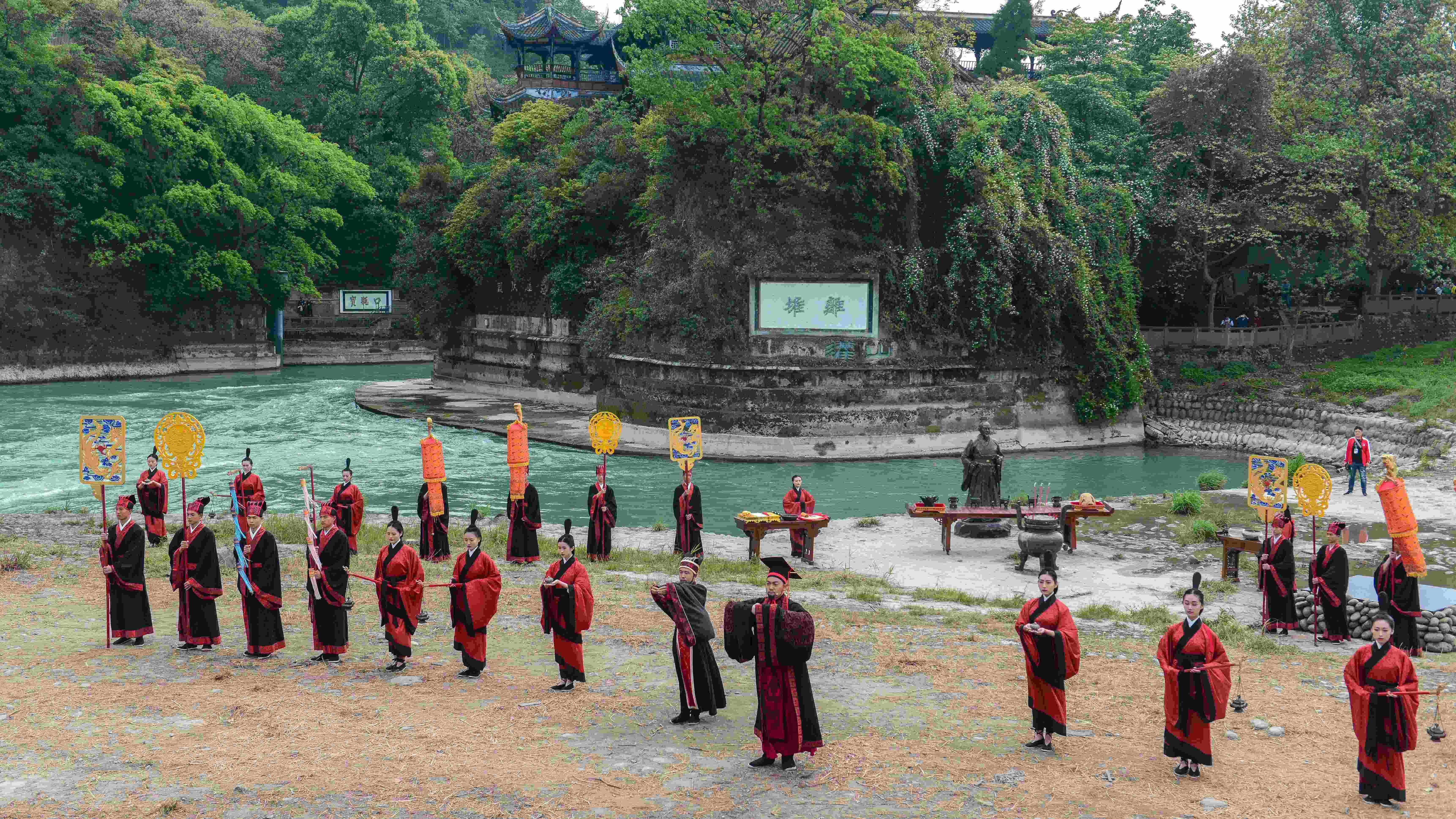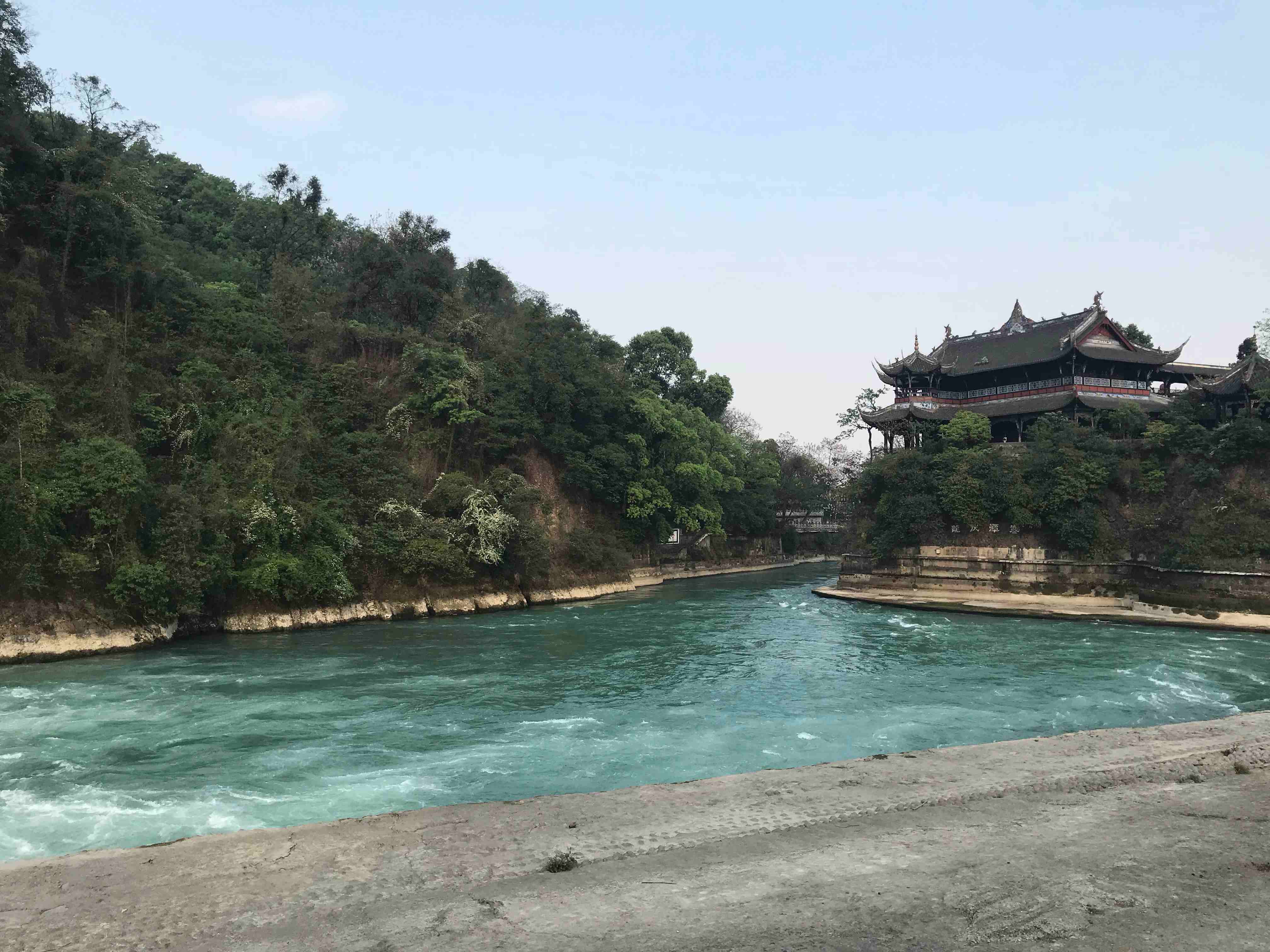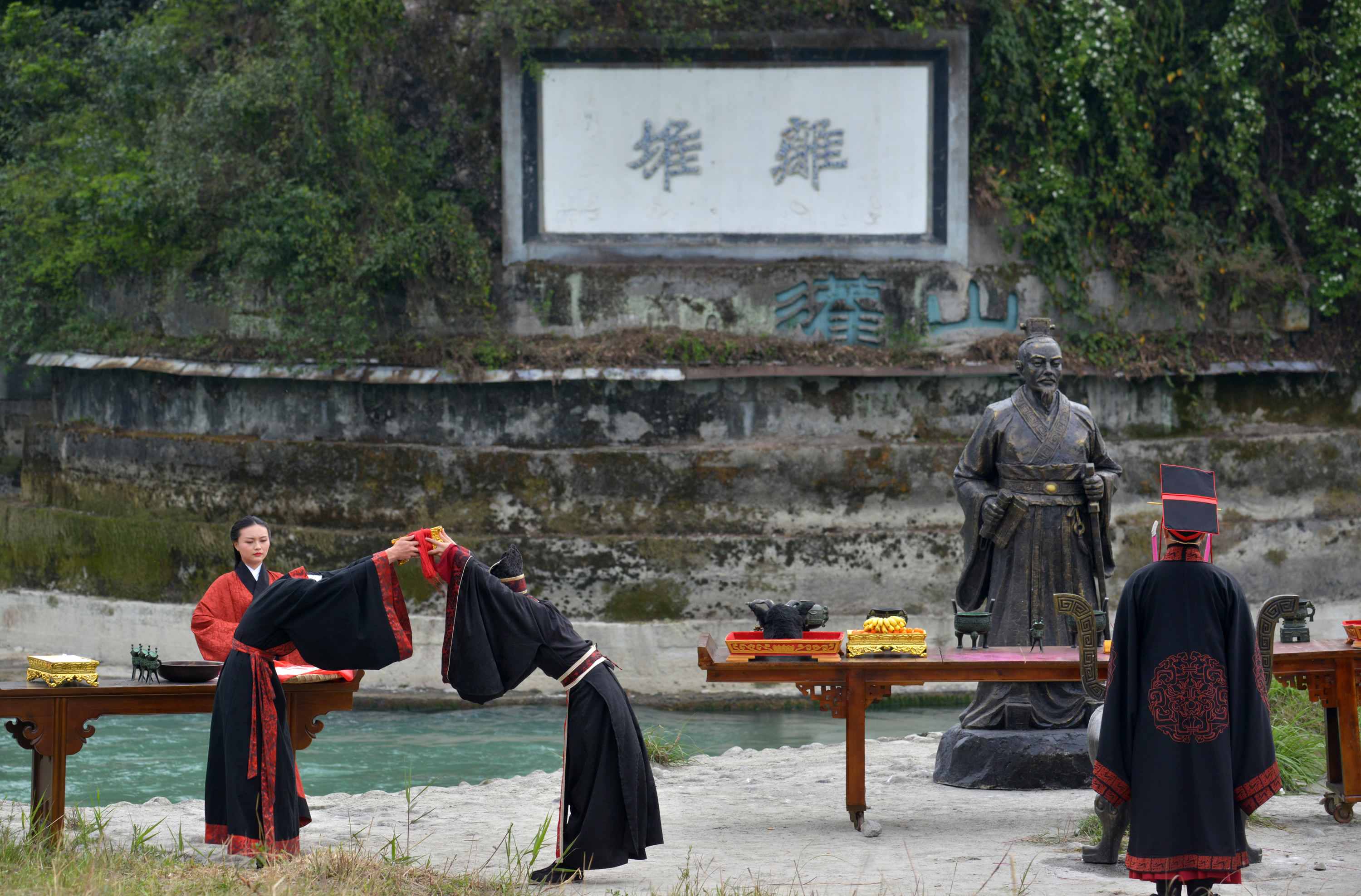
Culture
23:02, 04-Apr-2018
Dujiangyan water festival celebrates world’s oldest irrigation system
By Xu Mengqi, Luo Caiwen, Li Yang

An annual water festival took place on Wednesday at the Dujiangyan ancient irrigation system in China’s southwestern Sichuan Province, one day before the national Tomb Sweeping Day – a Chinese holiday set aside for people to worship their ancestors.
Dujiangyan is the world’s oldest irrigation system.
Built more than 2,260 years ago, it is reportedly the only surviving non-dam irrigation system from the ancient past.
Utilizing natural topographical and hydrological features, the project is deemed an engineering marvel and was barely undamaged by the massive May 12 Sichuan earthquake.

Check gate of the weir works system that allows water into the Chengdu Plain. /CGTN Photo
Check gate of the weir works system that allows water into the Chengdu Plain. /CGTN Photo
Now a UNESCO world heritage site, Dujiangyan draws admiration of tourists from all over the world.
Every year around Qingming Festival, festive celebrations were held in remembrance Li Bing, the father of Dujiangyan who came up with the weir works system which manages water for human use and yet is in complete harmony with nature.

Actors performing a ritual in remembrance of Li Bing /Photo provided by Liu Jie
Actors performing a ritual in remembrance of Li Bing /Photo provided by Liu Jie
Construction of Dujiangyan started at 274 B.C. and completed in 256 B.C., according to Sichuanese culture scholar Wang Guoping.
The most difficult part – creating a channel by gauging through a mountain before gunpowder and explosives were invented – took eight years to complete.
The system brought an end to flooding in the area and turned Sichuan into a thriving and productive agricultural region in China.
Today it is still in use to irrigate over 668,700 hectares of farmland in the region, and provide water resources to more than 50 cities in Sichuan Province.
Participants of the festival were also treated to a water releasing ritual which marks the end of annual waterway repair – an ancient project which no longer happens annually due to profess in conservation technology – and the beginning of farming season by allowing water, which is increasing in volume with the arrival of spring into the farmlands.

SITEMAP
Copyright © 2018 CGTN. Beijing ICP prepared NO.16065310-3
Copyright © 2018 CGTN. Beijing ICP prepared NO.16065310-3